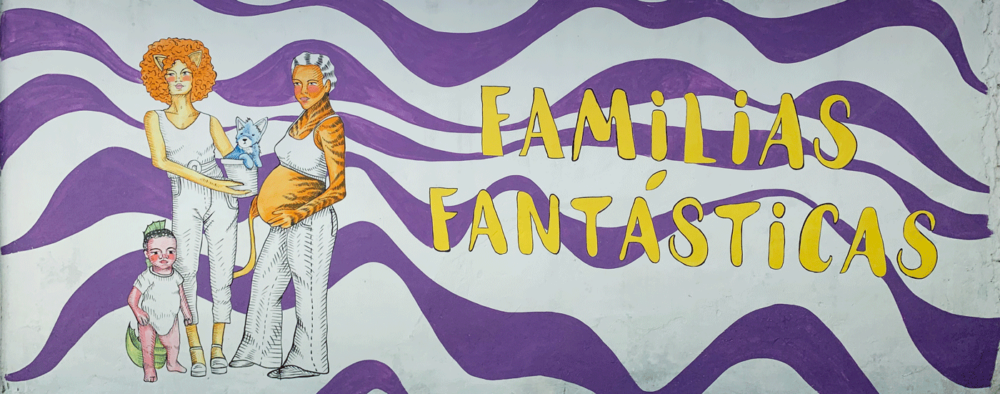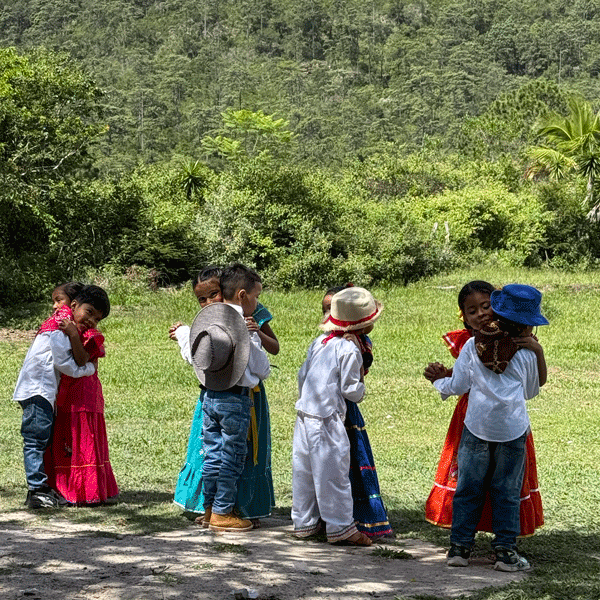
Education
Education, Gender justice, Youth power
Editor’s note: This blog post is also available in Spanish.
For Carol Hurtado and Javier Ramos, who goes by “Jota,” the road to creating an arts and environmental education program for children started with hip-hop.
As part of the Colombian hip-hop group Haga Que Pase, which raises awareness about social issues through its lyrics, they used proceeds from their music to support programs for children in Jota’s hometown in southwestern Colombia. The region has been hard-hit by a decades-long armed conflict involving guerrilla groups and paramilitaries, and Jota and Carol wanted to provide new opportunities for local children.
In 2020, they founded a nonprofit organization, Fundación Haga Que Pase, which translates to “Make it Happen”. Jota and Carol knew from their own experiences how effective art can be as a tool to inspire change, and they wanted to share that power with young people. They were also deeply concerned about protecting the environment and hoped to educate children about environmental issues. “We felt like we needed to transition from denouncing problems to proposing solutions and starting to do concrete actions,” Jota said.
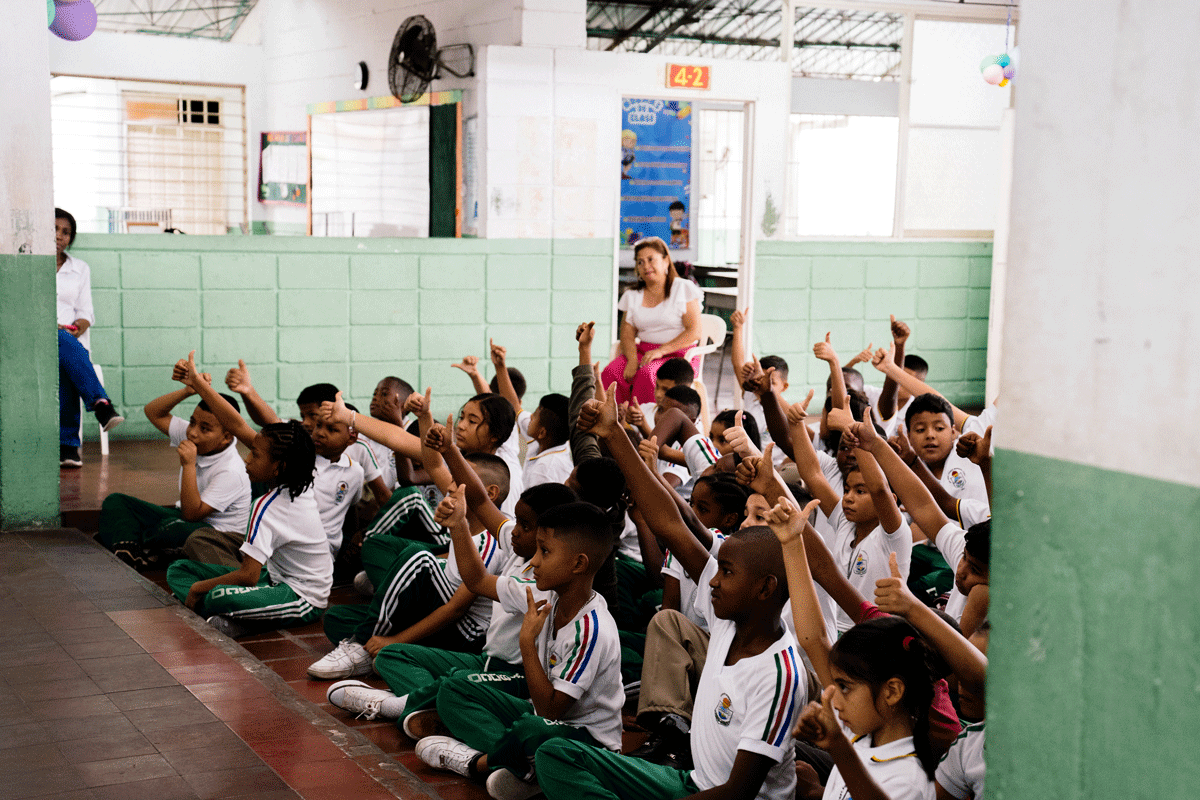
Through a program called Manos de Vida, which translates to “Hands of Life,” Fundación Haga Que Pase offers arts and environmental education programs to public school students in low-income neighborhoods in Cali, Colombia. Students aged 8 to 14 participate in music, arts, ecology, and nutrition activities that help deepen their awareness of environmental protection, diversity and inclusion, and other important issues.
For many of the students, these issues are already familiar. The community where Fundación Haga Que Pase works includes many Afro-Colombian families and families that have been internally displaced by Colombia’s ongoing conflict. Both groups have faced discrimination.
“We always keep inclusion and diversity in mind in everything we do including our work in the classroom,” Carol said. That means not only promoting anti-racism, but also the inclusion of the LGBTQ+ community.
Earlier this year, Fundación Haga Que Pase teamed up with a muralist to create a mural depicting diverse families at the school where the organization works. The message, Carol said, is that “all of us can be family no matter who we are on the outside. It seemed very important to us that the children had this mural in their school and could see it every day.”
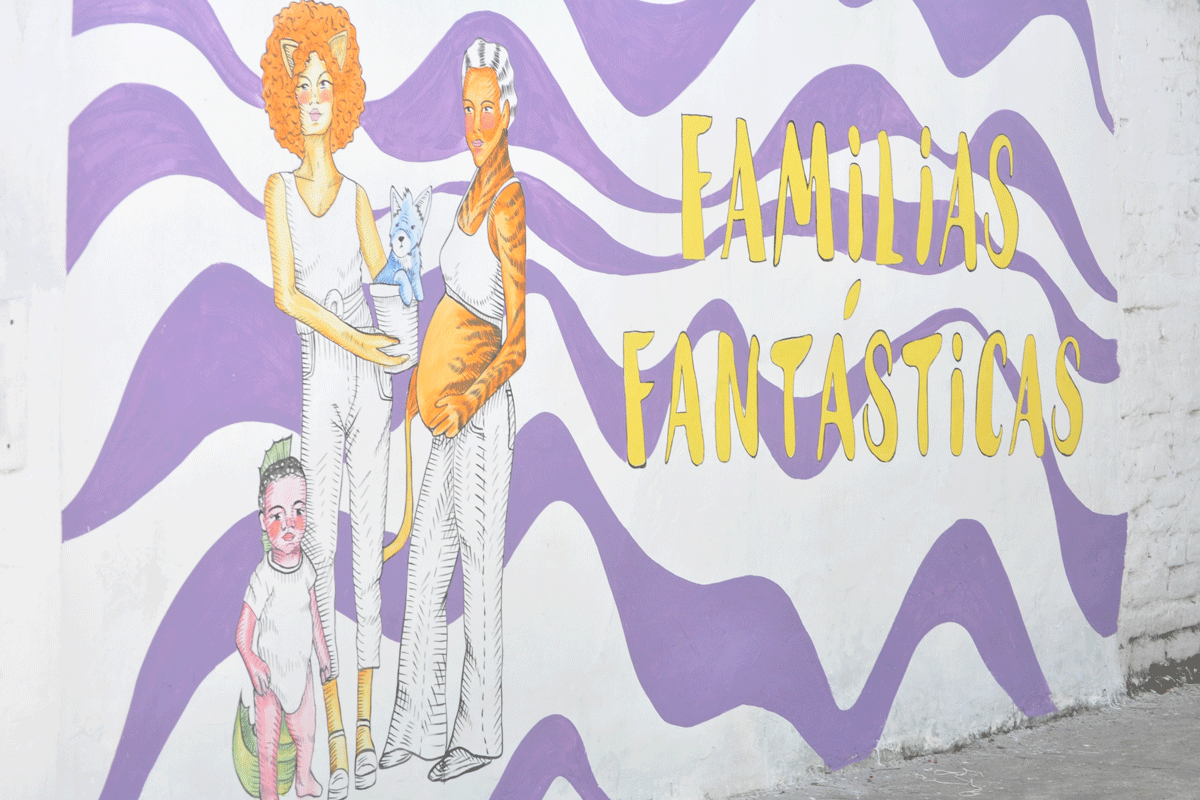
Many of the students also already had some familiarity with environmental issues because their families were displaced from the countryside, where their parents or grandparents farmed. “They’re very receptive when we talk about caring for nature,” Jota said.
Through the Manos de Vida program, students learn about the importance of recycling and protecting the environment. They participate in activities, like sowing seeds and caring for plants, that enable them to connect with nature.
Fundación Haga Que Pase’s goal is to offer an education that will serve children for life. And they’ve already seen an impact on the students with whom they work. When Jota and Carol first started the program, one of their students was aggressive and struggled in school. His teachers feared that he would have to repeat the same grade level. But the Manos de Vida program helped him to enjoy learning and connect with his peers, and he has since become a class leader who is on track to attend high school.
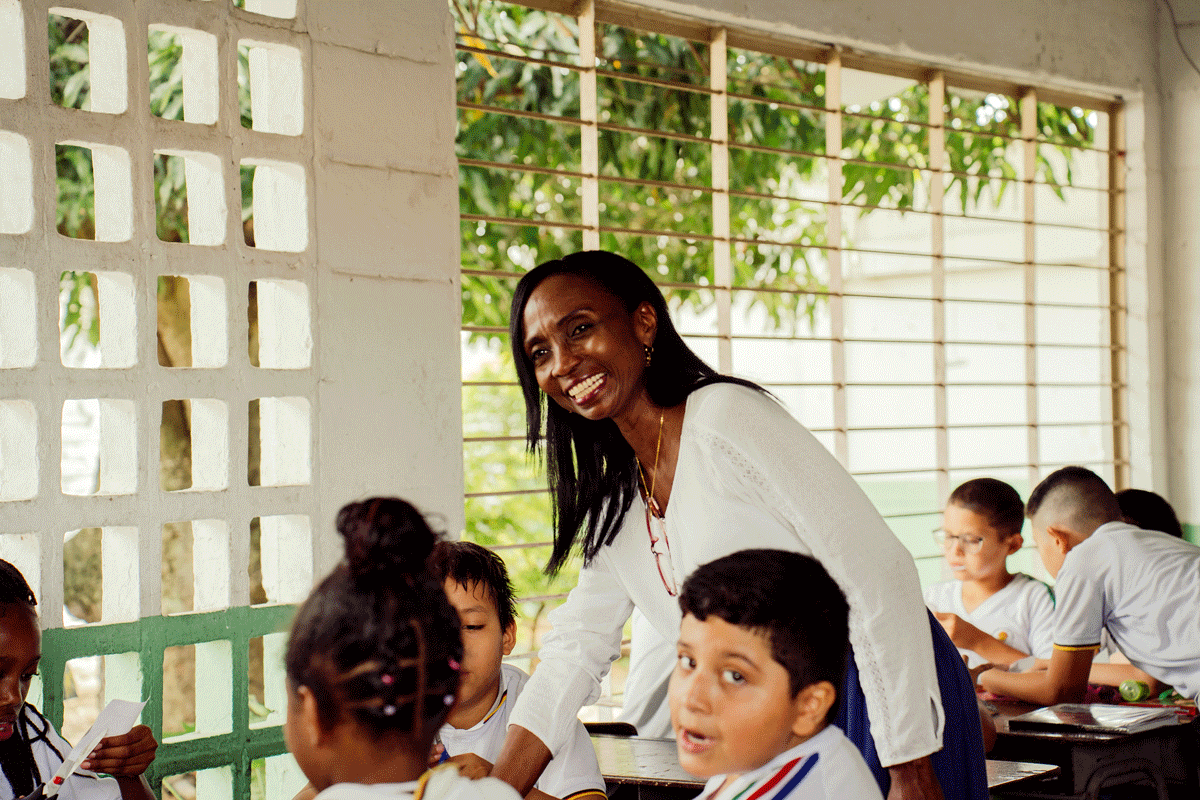
The children and youth with whom Fundación Haga Que Pase works “give me hope again,” Carol said. “The love I share with them is returned to me when I see the happiness with which they receive the opportunities we offer them.”
In addition to providing extracurricular activities in schools, Fundación Haga Que Pase connects Afro-Colombian artists and activists with artists and activists from Africa to foster a cultural exchange. The organization also helps people in rural areas restore forests and grow and sell organic foods.
As they look to the future, Carol and Jota hope to expand the Manos de Vida program to reach more students. Jota described their work as “a drop in the ocean,” but one that has the potential to help children develop a social and environmental awareness that will serve them throughout their lives. “It’s a drop that we create with happiness and we’re willing to continue putting drops into the ocean,” he said.
Header photo: The mural Fundación Haga Que Pase helped create at the school where the organization works. © Fundación Haga Que Pase
